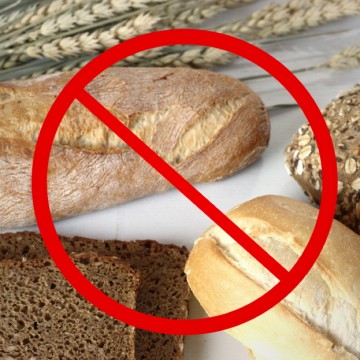Is It Time For You To Go Gluten-free?
Thursday, November 20, 2014

Photo Credit: iStock
The science is there. Kind of. And the industrialized food makers wasted no time in packaging up our desire for gluten-free food, and have saturated the market. This fad was born of a perfect mix of science, our desperation to feel better, and the eager fake-food makers.
It has long been held that people with celiac’s disease, which is about 1% of the population, or 1 in 133 people, absolutely must follow a strict gluten-free diet or risk terrible health issues. This article is not about those people (not much, anyway), rather it is mostly aimed at the many claims of gluten sensitivity. According to the National Foundation for Celiac Awareness, roughly 18 million Americans are thought to have gluten sensitivities that can cause symptoms like bloating, fatigue, foggy brain, joint pain, and headaches. This is where things start to get interesting.
There is ongoing debate as to whether non-celiac gluten sensitivity (NCGS) is a real thing — could it just be IBS? Could it be a suppressed autoimmune disease? Could it just be unhealthy eating habits? It is easy to dismiss the people who claim to be gluten sensitive as hypochondriacs, but it is not fair, and it dismisses the many studies that say otherwise. The most touted and respected research has come from Dr. Peter R. Gibson of Monash University, and in 2011 Monash researchers published a widely read paper that showed that people with IBS who tested negative for celiac disease had far fewer symptoms of GI distress and fatigue when they avoided gluten in their diets. With the publishing of this paper, the gluten-free craze began.
IBS is a collection of symptoms thought to affect 10-15% of the population that leads to varying degrees of GI distress, and for which there is currently no definitive diagnosis or treatment. Dr. Gibson’s paper finally seemed to show proof that NCGS is a real disease, and that IBS may be treated with a gluten-free diet. People went gluten-free and they felt better. In all likelihood, if you ask your gluten-free friends why they avoid gluten they’ll tell you that they feel a lot better, with less bloating, less fatigue and better digestion. Although a great deal of more research was needed, it seemed that researchers were finally onto something.
Cut to 2 years later when the same doctor from the same University, in attempting to further delve into his initial findings, discovered that under tighter parameters and testing, patients reintroduced to gluten did not experience a return in symptoms. This second study showed that no evidence of gluten sensitivity appeared, and the initial findings were not replicated.
How could this be? There was a potentially big difference between the two studies — the second study had the patients follow as a baseline something called a low-FODMAP diet.
The low-FODMAP diet is one that is low in foods containing fructose, lactose, fructans, galactans, and polyols. Wheat (high in gluten) is a high-FODMAP food, and therefore was avoided by the patients of the second study, but they also avoided dairy, sugars, beans, stone fruits and more, all of which are potentially irritating foods for many people. A very important finding of this study is that “gluten may not be a specific trigger of functional gut symptoms once dietary FODMAPs are reduced.” This could mean that eating a low-FODMAP diet allows the gut to heal, so that when ingesting things such as gluten, they no longer cause the extreme irritation that they did in the past.
Another interesting finding of the 2013 study was that although a good number of people on gluten-free diets did not get relief from their symptoms, they continued to eat gluten-free. It turns out that they stuck with the diet because consuming less gluten made them less depressed. This finding is in line with the thoughts of many alternative medical practitioners and nutritionists that gluten sensitivity may be causing issues well outside the realm of the gut.
After all of that info, you are no closer to knowing whether or not you, too, should eat gluten- free. There are a few take-aways/rules that are important to keep in mind when making this decision:
1. Eat real food. Just as in my article about soy published in October, real food trumps fake food every time. So if eating gluten- free means you will replace whole foods with manufactured chemical and preservative-laden prepackaged foods, think again.
2. If you worry that you may be gluten-sensitive, the first thing that needs to be done is to rule out the autoimmune disorder that is celiac’s disease. Although only about 1% of Americans have this disease, it is estimated that 80% of them never get diagnosed (The American Journal of Gastroenterology. 2012 Oct;107(10):1538–1544; quiz 1537, 1545. PMID 22850429). Find an MD who is well-versed in testing for celiac’s so that you can get the proper diagnosis.
3. Find a healthcare provider who can help you decide if your health issues would benefit from going gluten-free, or if you should be low-FODMAP intead. These diets should not be undertaken hastily or without the proper support of a provider who can help you test and retest your possible sensitivities.





Follow us on Pinterest Google + Facebook Twitter See It Read It